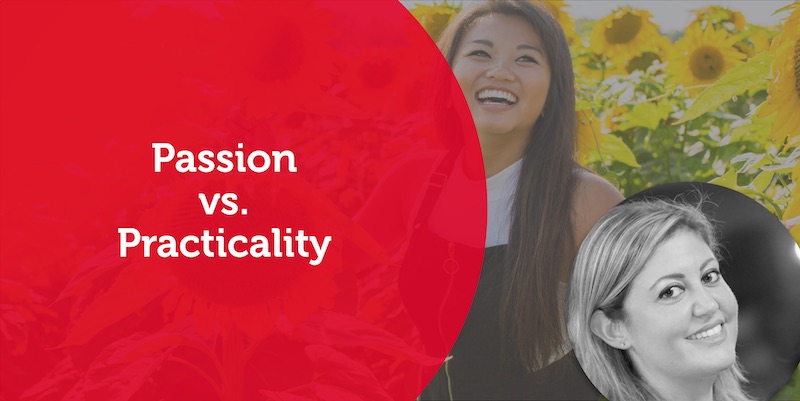 A Coaching Power Tool Created by Solange Corm
A Coaching Power Tool Created by Solange Corm
(Career Coach, UNITED ARAB EMIRATES)
Passion is by simple and short definition: a strong and barely controllable emotion. It is a feeling of intense enthusiasm towards something.
Being a career coach, how many passionate individuals I encounter in my profession? And endless number! However, the question is: “Is passion enough to drive your career?” Or being rational, realistic and practical has to balance this strong desire to grow?
My power tool is: Passion vs practicality
As a career coach, I am certain that introducing the notion of balancing passion and practicality is key in any coaching session.
A client who is seeking career coaching comes with luggage of passion; this last is sometimes mind-boggling and action is needed accordingly.
This passion needs to be explored, reframed and repurposed with some practicality into order to be translated into proper ownership of career move.
My coaching model is the “DRIVE” model, which in a nutshell revolves around driving your own profession to the level up. This definitely requires passion but also needs a realistic and practical understanding which can be translated into ownership and drive.
There is a very narrow division between being passionate to grow and the speed of career growth that can slip quickly into a demotivating or disappointing outcome. It is good to explore with the client this passion and help him deploy it into realistic career steps.
My own power tool comes combined with a very powerful existing tool in the course called:
Responsibility vs Blame
If I want to summarize it and link it to my own power tool:
“In any given situation you are either taking responsibility or you are blaming.
Responsibility is about giving up on the chance of different past and focusing on choosing the future.
When we are blaming someone or something else, we are actually giving away our power and positioning ourselves as the victim.[i]” We have given ourselves no choices.
This means responsibility is when one gives a positive consent that he/she has choices in the onward future.
Yet, when one is aware that he/she is blaming, he can shift to the choice of responsibility. Thus, when one becomes conscious of this choice, he will grasp a “freedom” in the related areas of life. Hence, “whether you are blaming others, or simply fate, you can reframe your perspective from blame to responsibility and experience true freedom.
Responsibility leads to freedom:
Responsibility = Freedom + Empowerment
Blame = Loss of freedom + Disempowerment
Responsibility is not just a way to act, it is a way to view our entire lives. It is a perspective that we can choose to empower us.[ii]”
It is important to shed light on how to end the “Blame-Game.” Above and foremost, no-one can cause you to hurt unless you have allowed them. Therefore, instead of pointing fingers, it is more honourable to take responsibility instead. This entails admitting that human nature is vulnerable to committing mistakes. So no need for conveying blame onto others, rather it is important to act responsibly. Here the language of communication would shift from the blaming you-messages to the I-messages, where assertiveness and responsibility are evident.[iii]
In turn, one could hence move to “Forgiveness.” When one stops the blaming process, he would then be forgiving. Shifting to forgiveness, whether self-forgiveness or towards others, opens an empowered door towards the present and future.
Source
[i] (2011, June 8). Personal Empowerment and Responsibility – Part I. Retrieved from https://www.warriormindcoach.com/personal-empowerment-and-responsibility-part-i/
[ii] ibid
[iii] B. H. (2017, February 28). I-Messages and You-Messages. Retrieved from http://www.beyondintractability.org/essay/i-messages